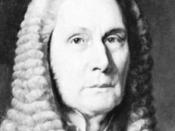The question requires discussion of the sources of law in the United Kingdom (hereinafter referred to as UK) which comprises of common law, equity, legislation, European Union law and the European Convention on Human Rights. The UK is a stranger to codification of laws, hence it comes as no surprise that the UK does not have a written constitution. The English legal system comprises of two main sources of law. Primary sources of law cover common law, equity, legislations and European laws. Secondary sources of law are customs and works of authorities. Each source of law remains an integral part of the English legal system and co-exists with one another to form a fully functional legal system.
Common law is known as the cornerstone of the development of English legal system. After Norman Conquest in 1066, William the Conqueror standardise the law by setting up the Curia Regis. Itinerant justices were appointed by the king to adjudicate disputes in each region.
Over time, justices selected the best customs which applied to the whole country. This marks the emergence of common law.[1: The King's Court under the Norman Kings which decide disputes. Obtained from J Martin and M Gibbins, A-ZHandbook Law (4th edn Philip Allan Update, Oxford 2010) 60.]
Common law is founded based on the doctrine of stare decisis, meaning to 'let the decision stand' and its rationale lies essentially in treating like cases alike. Lord Mansfield praised this system as it created certainty and consistency in judicial decisions. [2: J Martin and M Gibbins, A-Z Handbook Law (4th edn Philip Allan Update, Oxford 2010) 237.][3: Julius Stone, Legal System and Lawyers' Reasonings (Stanford University Press, Stanford, 1964) 238.]
However, the system changed to one that was inadequate as writs were limited depriving some litigants of the ability to commence...


